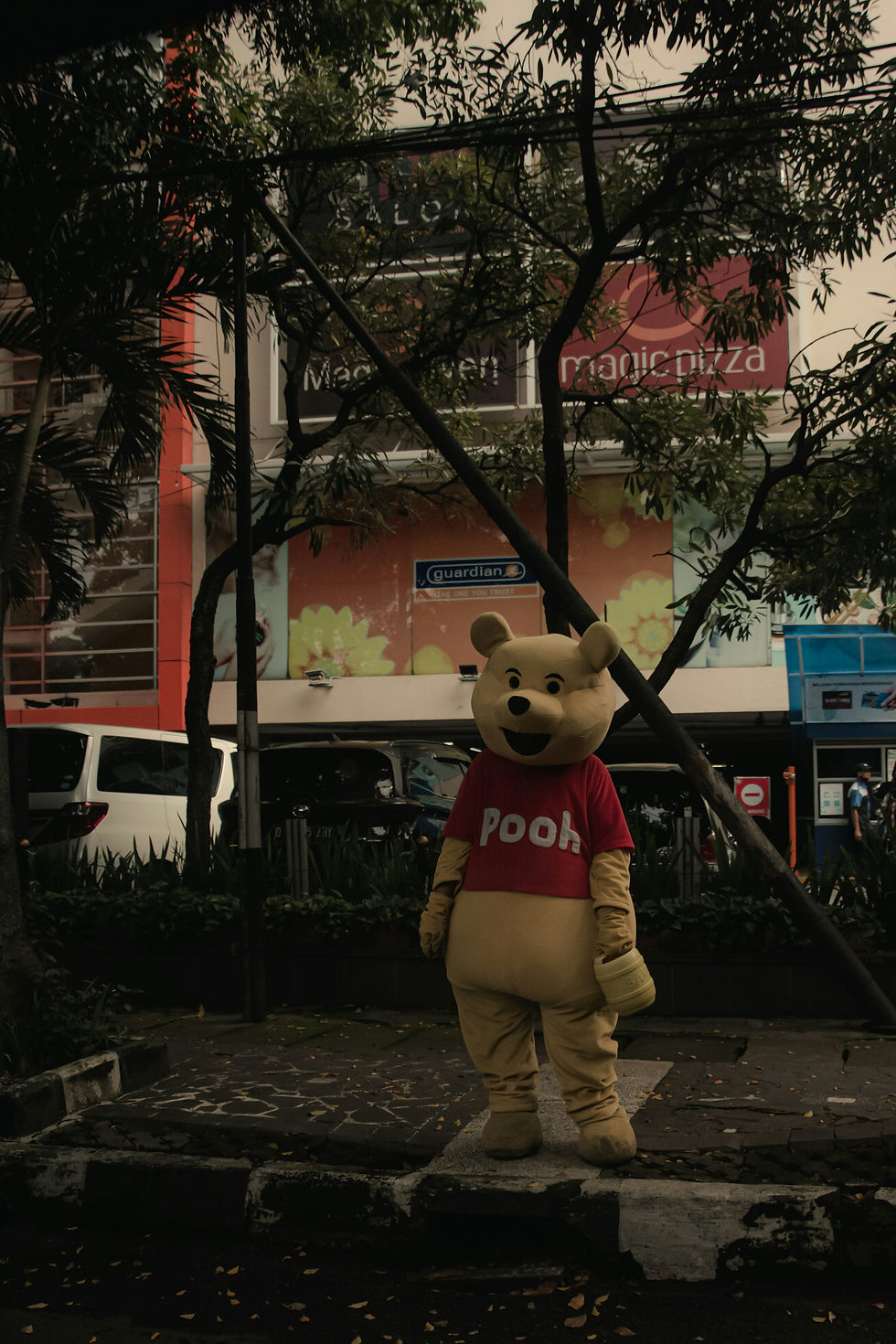“I'm the only Trigger!”
- Mike and Glenn
- Jun 30, 2024
- 3 min read

Winnie-the-Pooh debuted on Christmas Eve 1925 in an article published in the Evening News, a London newspaper. In the few short years that followed, several children's books written by English author A.A. Milne paved the way for generations of love for Pooh and her friends.
Our favorite character was Tigger, who first appeared in the book The House at Pooh Corner in 1928. We connected with the bouncy tiger who was most obviously afflicted by a variant of attention deficit disorder.
We are not scientists, doctors, or professionals, so don’t take us too seriously. However, we have witnessed that most people suffer from an attention shortage until what interests them gains their focus.
Like Tigger, we jumped from one focal point to another, staying just long enough to determine that the relief from our pains was not sustainable. We were drawn to alcohol as early experience resulted in relief, clarity, and confidence. We kept going back in an attempt to re-capture the magic that was found in the moment. We repeated the action so often that it became a habit, our go-to, that we tapped into in tough and good times.
These taps became triggers, prompts, sparks, or touch-offs, acting as natural reactions to most unfolding events: Tired: drink. Happy: drink. Stressed: drink. Hungry: drink. Disappointed: drink. Angry: drink. Depressed: drink. Lonely: drink; in recovery, we are trained to be aware of situations and circumstances that may cause us to return to consumption in an attempt to obtain the relief, clarity, or confidence we so desire. We are taught to be aware of and respect triggers for what they are – a natural pull to self-protection and self-satisfaction.
We think that blaming a trigger for a relapse, the return to the drink has little validity as, for us, inhaling was a bona fide trigger. For it is a desire to alter the reality that is the lure, and once we understood that the poison possessed no power to do so, we were released to the true path to restoration and some level of sanity.
We are not suggesting that there are not certain conditions that are ripe for danger in early recovery. An unnecessary visit to a bar, a stop at the liquor store, or an event where alcohol will be served are conditions that should be avoided at all costs.
We suggest that it is not the physical but the mental state that drives our protection. Is our focus on appreciating what we have or on a perception of what we should have? Have we thought through the act of putting our hand in the bee hive for a taste of the honey? If we have all we need from the Garden of Life, do we really need the apple? Our mindset today pulls us toward gratitude for what we have gained and away from what we have lost.
The world preaches leaping from one shiny fixation to the next. You deserve it, and just do it. These are the messages that have drawn us in the past. Easy does it, and just for today are the mantras that have supported our sobriety.
Understanding why we drank has value, but our efforts today are to recognize what it will take to keep us from returning to those hurtful habits. Our strength is found in our spiritual stance, embracing a deep acknowledgment of why we don’t.
“Well, we better be bouncing along now, chums! ...”
Thoughts and ideas for this blog post were taken and built upon from sober.coffee podcast episode #54 titled “Therapy - The Value of Working with a Therapist in Sobriety” The session dropped 4/13/2022. Click here to hear the podcast.
Photo by Farel Yesha on Unsplash
BLOG DISCLAIMER:
Alcoholics Anonymous and AA are registered trademarks of Alcoholics World Service. Inc. References to AA, the 12 steps, and 12 traditions does not mean that AA has reviewed or approved the contents of this publication nor that AA agrees with the views expressed herein. This publication is intended to support personal growth and should not be considered a substitute for healthcare professionals' advice. The author’s advice and viewpoints are their own.



Comments